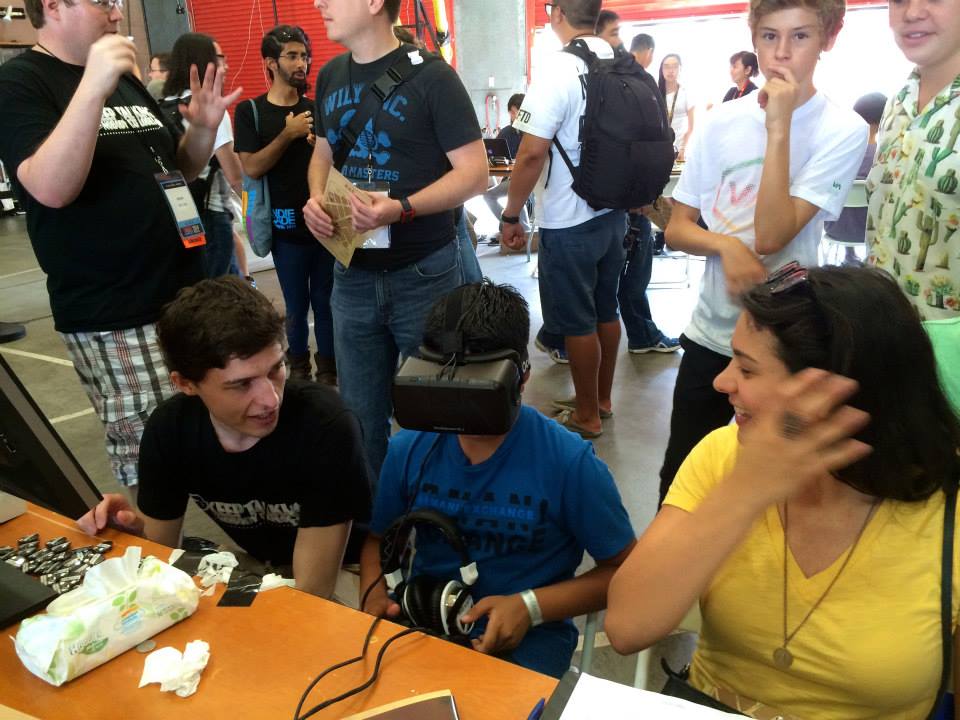
The Incubator School has drawn the attention of many game developers and entrepreneurs looking to change formal education.
Ask those behind the Los Angeles-based start-up Incubator School and they will tell you innovation in school-based professional development relies on a new way of thinking and learning. And that it doesn’t happen by accident.
At the Incubator School, teachers experience a series of collaborative, game-based learning modules that prepare them to empathize with their peers and students, and to build enduring instructional tools and approaches, based on the power of imaginative play.
The Incubator School is a new kind of public middle and high school based on the theme of entrepreneurship, which weaves games and game-based learning together to help teach entrepreneurial skills like design thinking and iteration.
The school opened in August 2013, and is still being built from the ground up, with an emergent curriculum approach based on teacher and student interests that fully leverages professional development collaborations with local and national groups, such as Pearson Foundation’s New Learning Institute.
We followed the first week of the Incubator School’s Summer Institute PD program.
We asked the Incubator School folks to discuss their program and what game developers can learn from their startup. Those interested in what teachers can take away from the Quest2Teach project can find more at the Institute of Play’s website.
gamesandlearning.org: What kind of training should game developers plan on producing if they want teachers to use their game / system?
Incubator School: We’ve worked with many different developers, and in-person training is not sufficient, because you never think about what it is you need to ask in the actual training itself. You always have questions at 11pm when you are setting up the class.
The most useful kind of training is short video modules that you can watch on your own time, at your own convenience. These could include brief on-boardings as well as youth studies.
gamesandlearning.org: What role have developers played in shaping the professional development plans? Is their involvement helpful? Necessary?
Incubator School: The more hands-on and more engaged developers are willing to be with schools, the better.
One of the best models out there is a process we experienced with E-Line Media and the game Historia. They picked 20 schools to be beta testers, and had close contact with those 20 schools, of which we were one. They were very responsive and interested in our needs, and there was a lot of back and forth. They are taking that feedback and using it to build something that is scalable.
gamesandlearning.org: How prescriptive should game developers be in suggesting lessons and objectives for teachers that use their games?
Incubator School: It’s helpful to have suggested lessons and objectives as a backbone. Some teachers want those resources, and it’s always great to see how the game connects to any standards and content.
Teachers aren’t asking developers to create curriculum for us, but we want a real sense of what standards they think are taggable in that game, and then they can leave it to us to decide how we want to implement that in our scope and sequence.
gamesandlearning.org: How can this program be implemented elsewhere? Is the program scalable? What would be some challenges that one may face?
Incubator School: We’ve been focused on getting the program up and running so far. As we try to build our practices and curriculum, we also are trying to build a meta-cognitive structure around that so we understand what is successful and what needs work.
One of the key things that we’re discovering is that before you can have start-up students, you need to have start-up teachers. Unlocking teacher creativity is the key to amplifying student creativity.
That’s why we’re focusing on letting teachers develop each other – trying to identify strengths and passions each teacher has, and bringing in outside experts only as needed. And we’ve seen phenomenal levels of growth in our second year teachers – we are trying to use reflection thoughtfully to replicate that in systems so as we grow we will find great new people. There’s no handbook, so it’s all just kind of learning through doing and learning through collaboration.
Additional Resources
- Kids Inc: Meet the youngsters running their own companies (BBC)
- Incubating ideas in Playa Vista (LA Register)
- How To Succeed At A Startup While Still Passing Middle School (FastCoexist)
About the Video Case Series
Data from the 2012 Joan Ganz Cooney Center national teacher survey showed that few teachers are exposed to games-based learning in their pre-service training, and that teachers usually provide their own ongoing professional learning on games and learning. Thus, as a follow-up on the 2012 series of video case studies on teachers using digital games in the classroom, this series looks at how teachers can be exposed to games through various forms of PD. From a game-based approach to teacher education at ASU to play-based professional learning for informal learning environments at TASC, this series takes the viewer on a journey of innovative and novel approaches to teacher PD.
The series is a project of the Games and Learning Publishing Council and funded by the Bill and Melinda Gates Foundation. The series is produced by the Joan Ganz Cooney Center and the Institute of Play.
